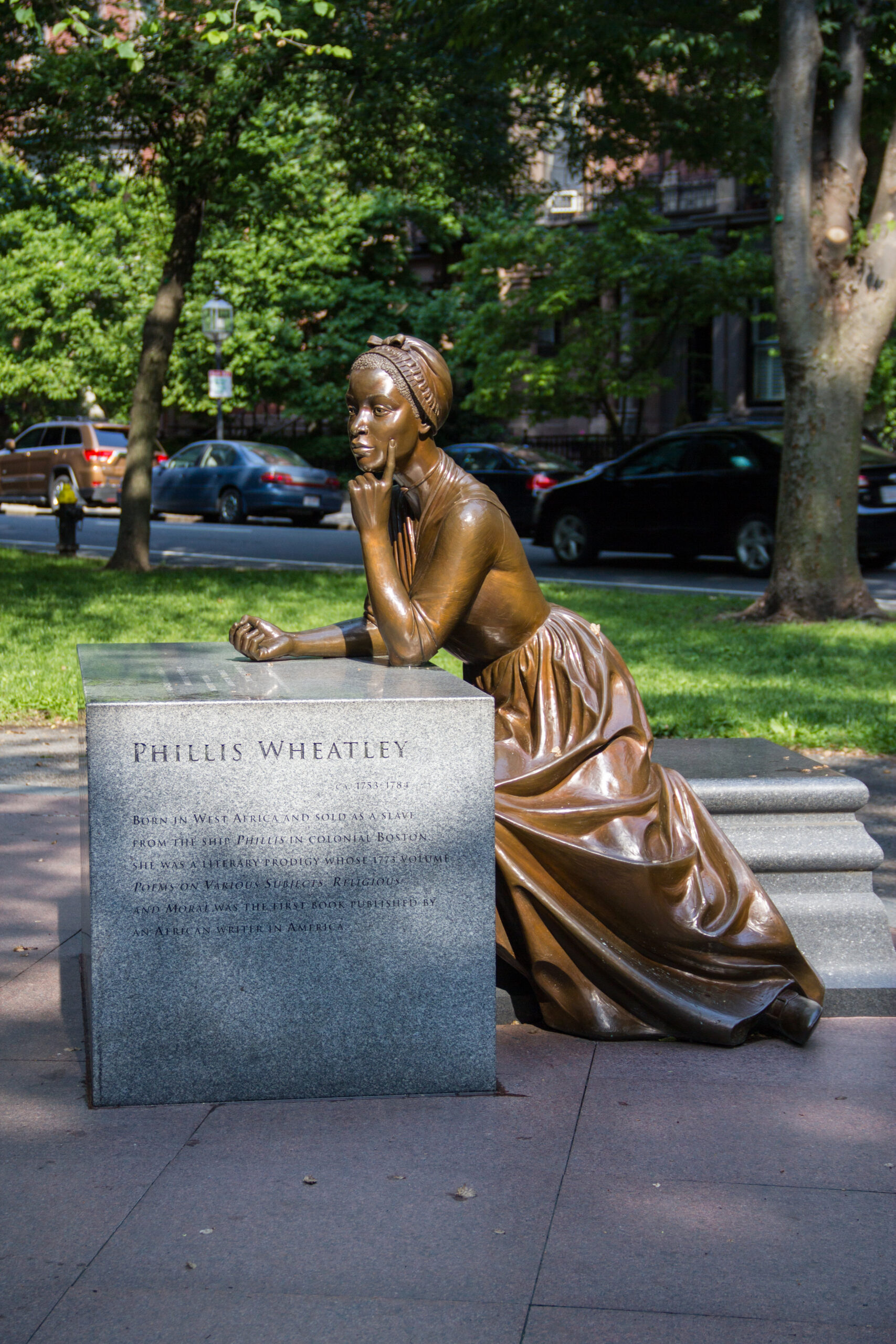“Long as in Freedom’s Cause the Wise contend, / Dear to your Country shall your Fame extend,” wrote the poetess Phillis Wheatley in “Untitled Lines on the Boston Massacre.” The sentiment was uncommon for female poets of the period – and even more so for Wheatley, a formerly enslaved African American woman.
Born around 1753 in The Gambia and brought to Boston in 1761, Wheatley was enslaved by a Boston family who educated her in classical texts and literature. By age 14, Wheatley was writing poems, including “To the University of Cambridge,” an ode to the students at Harvard University.
Wheatley’s poetry commented on various religious and political topics – and she is often considered the first African American author of a published book of English poetry. As a result of her origins, many doubted her literacy and the legitimacy of her poetry – yet Wheatley went on to become a published poetess with her book Poems on Various Subjects, Religious and Moral, published in London in 1773.
Wheatley employed a robust style full of allusion, embodying heralded poets such as John Milton. She boldly wrote about public-facing topics, including theology, morality, and politics—a style atypical of female poets of the time. In her poem “To the University of Cambridge, in New England,” she implores the male students of Harvard to “Improve your privileges while they stay: / Caress, redeem each moment.”
Wheatley also wrote several poems addressed to powerful political subjects, asserting her authority in her writing. In a poem addressed to King George III, entitled “To the King’s Most Excellent Majesty on his Repealing the American Stamp Act,” Wheatley audaciously thanks the King for repealing the Stamp Act. Wheatley goes even further, though, subtly advocating for the notion of freedom for enslaved people: “When kings do Smile, it sets their Subjects free.” In other poems, Wheatley wrote to notable American Revolution figures such as George Washington and Andrew Oliver, the Lieutenant Governor of Massachusetts, in 1773.
Phillis Wheatley died young at the age of 31 after contracting pneumonia and giving birth to her daughter in December of 1784. It’s unknown where Wheatley was buried – but some sources say she was buried at an unmarked grave in Copp’s Hill Burying Ground. Sadly, her poetry subsequently faded into obscurity – but in the last century, Wheatley has once again been recognized for her incredible contributions to the literary world. Visitors can honor her memory at her statue alongside other historic women at the Boston Women’s Memorial on Commonwealth Avenue Mall in the city’s heart. Wheatley’s insightful poetry, reflecting on her time’s social upheaval and revolution, forever cemented her place in the canon as a foundational American poet.






